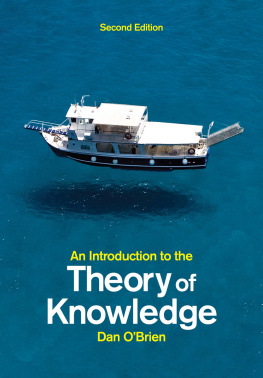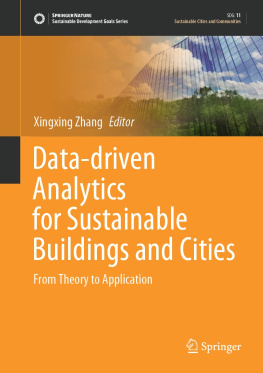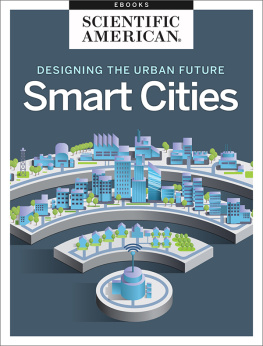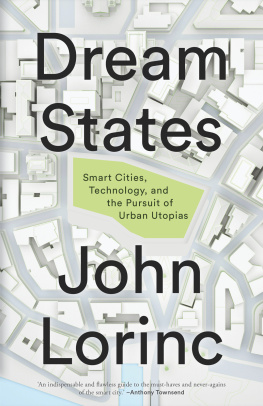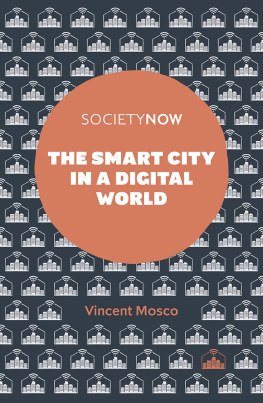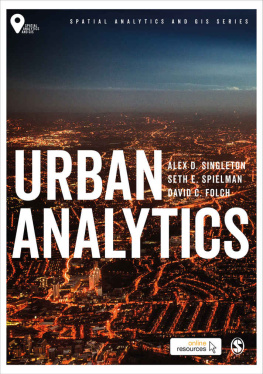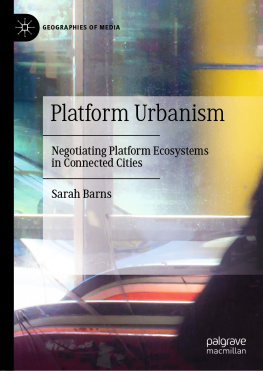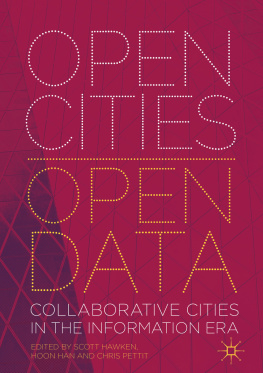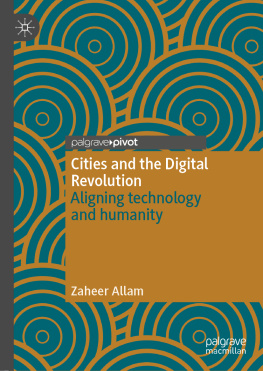978-0-674-97529-3 (hardcover : alk. paper)
Names: OBrien, Daniel T., 1983 author.
Title: The urban commons : how data and technology can rebuild our communities / Daniel T. OBrien.
Description: Cambridge, Massachusetts : Harvard University Press, 2018. | Includes bibliographical references and index.
Subjects: LCSH: Urban renewalMassachusettsBoston. | Municipal ServicesMassachusettsBostonCitizen participation. | Public SpacesMassachusettsBostonManagementCitizen participation. | Public SpacesManagementTechnological innovationsMassachusettsBoston. | Sustainable urban developmentMassachusettsBoston.
IN LATE AUGUST 2011, Hurricane Irene struck the east coast of the United States, battering the country from North Carolinas Outer Banks to Vermont. Along with much of the rest of Massachusetts, Boston was lashed with winds and rain. I am interested in what happened next.
In the 48 hours after the storm, the city of Bostons Parks and Recreation Department received 1,045 reports of tree emergencies, about the same amount it would typically receive in an entire year. Each of these reports was processed by the citys 311 systema telephone hotline and associated web applications that offer direct access to nonemergency city servicescreating a digital record of the damage that Irene wrought on Boston and its infrastructure, including fallen limbs, branches, and even whole trees. There were also reports of downed streetlights and signs, and requests for highway maintenance. If we map the reports, we see that they came from across the city, though they were more common in some places than in others (see Neighborhoods along Bostons eastern coast, such as South Boston and Dorchester, were exposed to strong winds coming off the water and saw a particularly high density of downed trees. We also see a concentration in the citys more suburban southwest corner, a neighborhood called West Roxbury, where the storm took a toll on its tree-lined streets.
Reports made through Bostons smartphone application, Citizens Connect, permitted residents to describe their concerns in detail, offering a richness that numbers alone cannot. One resident in West Roxbury complained of an ELECTRIC POLE SLANTING Due to hurricane IRENE. This may cause major power outage in area if not attended too! In neighboring Hyde Park, a Bottom wire is sparking. Needs attention immediately could bring down power or start a pole fire. There was also a tree branch blocking avondale street and a possible live wire hanging from pole on Codman Park, both in Dorchester. And my favorite, if only for its distinctiveness: the huge sink hole in front of vacant church formed on St. George Street in the South End.
FIGURE I.1 Density of tree emergencies reported via Bostons 311 system in the 48 hours following Hurricane Irene.
More than just chronicling the impacts of Hurricane Irene, these reports tell an important story about the care Bostonians exhibited for their city in the wake of the storm. Each report contains an instance of custodianship, in which someone sought to counter the degradation of a space. She or he not only observed a damaged tree or downed power line but then took action to fix it. We repeatedly see this spirit of caretaking in the comments, as people fretted about a tree down blocking Ocean streetimpassable to emergency vehicles or about a tree fallen on car blocking side walk, two handicap persons could not pass! There was even a case in which we see custodianship occurring twice, first when Neighbors moved [a fallen tree] to sidewalk and again when the individual reported that it needs to be picked up.
What is more, the database reveals how people vary in their custodianship through user accounts. Whereas most reports regarded issues near the reporters home, a handful of individuals reported issues more widely; one person apparently made an activity of it, calling in 24 separate tree emergencies, which spanned the southern half of the city! Similarly, expressions of custodianship varied from place to place. For example, a tree down in the Uphams Corner section of Dorchester was reported by 10 different people in two days. In sum, whether they did so locally or across the area, once or many times, the residents and communities of Boston were able to channel their custodianship through the 311 system. This in turn equipped city services employees with a precise map of the damage created by Irene, guiding their efforts to restore order.
Hurricane Irene is just one instance of how 311 systems, which are steadily growing in popularity in American cities, enlist constituents in the maintenance of public spaces and infrastructure, or what I call the urban commons. At its heart, the 311 system constructs a collaborative relationship between city residents and government operations. Residents act as the eyes and ears of the city, reporting problems that they observe in their daily movements. City services departments then deploy the specialized equipment and personnel required to fix them. Though cleaning up after Hurricane Irene is a dramatic example of this teamwork, it is visible on any given day, as resident reports instigate the filling of potholes, replacement of streetlight outages, and removal of graffiti. In many cities, from Boston, to New York City, to Chattanooga, it has become the new normal for the upkeep of public infrastructure.
The 311 system has been lauded in recent years as a symbol of how technology can benefit municipal governance. Technologys promise is typically cast as a smarter, more efficient government that better embodies the democratic ideals of responsiveness and accessibility. This book takes a different tack, focusing on the novel insights we gain from the data generated by 311 systems, as well as the research-policy collaborations that these analyses can support. Importantly, the 311 data can advance knowledge in ways that are both theoretical, or scholarly, and practical, or applied. Toward the first, by documenting the custodianship of the city, these data offer insights into the fundamental challenge of the commons that confronts communities worldwide. While the maintenance of shared spaces concerns everyone, it is technically the responsibility of no one. Most research to date in this area has focused on how institutions can help to manage the commons, but far less is known about how, when, and why people contribute to this process. The 311 database captures such actions in intricate detail, opening the door to a variety of understudied questions: How do people approach this shared task? How often do they contribute to it, and what are their motivations for doing so? When do the combined efforts of a community succeed or falter in staving off degradation? We might extend these discoveries to the social and behavioral dynamics that underlie the functioning of urban neighborhoods and to other types of commons more generally.
Turning to the practical, because 311 is an active government program, the data it generates provide a natural tool for evaluating how it works. This holds immediate implications for the hundreds of municipalities that have 311 systems, but it can also provide insights on broader themes in public policy and administration. Such systems are representative of a governance strategy known as


